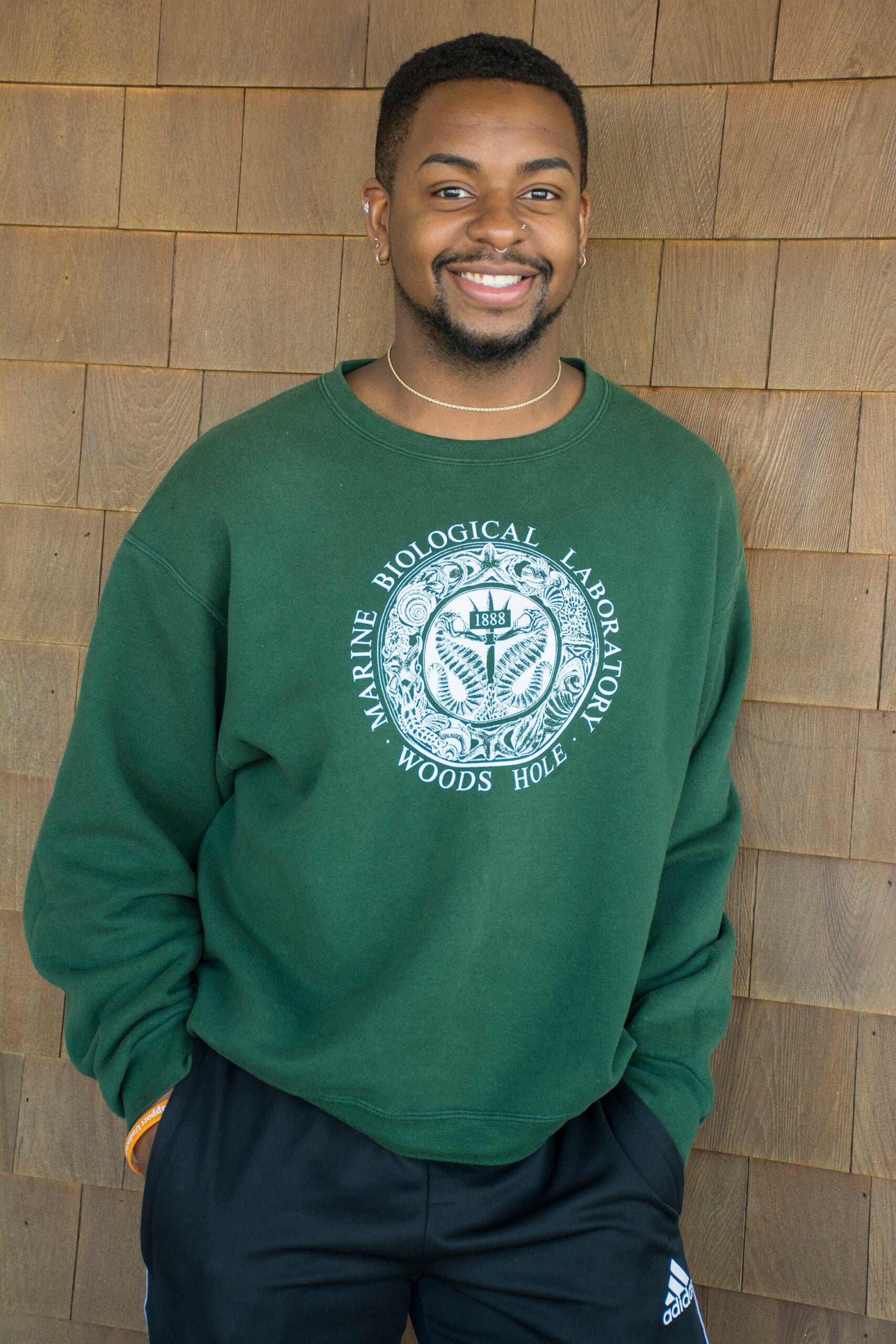KINGSTON, R.I. – April 30, 2019 – Gyasi Alexander was born in Trinidad and grew up on military bases all over the eastern United States. But when it came time to enroll in college, he chose the University of Rhode Island – in one of the few regions of the country he had never visited – to study marine biology.
“Being from Trinidad, I’ve always attached the ocean to my identity,” said Alexander, who graduated high school in Maryland. “When I think of the ocean, I think of islands, in part because whenever I visited my grandparents in Trinidad, the first place they took me was the beach.”
As he prepares to graduate from URI on May 19, Alexander is looking forward to graduate school and putting his marine biology degree to work while helping other under-represented students see that they, too, can make their mark in a scientific field.
“I didn’t have a lot of marine biology role models growing up because they didn’t look like me. At first, I couldn’t see myself in those fields,” he said. “So I feel like science communication is my personal vehicle to help extend opportunities to students from underrepresented backgrounds. It allows me to show that I’m a person of color and an immigrant in STEM, and that representation matters in creating a sense of belonging. I want people to see someone that looks like them doing something that, historically, they may not have seen.”
Alexander has already had success in sharing this message. He was the assistant producer of a documentary made with URI professors Bryan Dewsbury and Kendall Moore called “Can We Talk,” which features students of color discussing their sense of belonging in the STEM disciplines. The film is now being shown around the country.
“I liked that we put language to a feeling that so many people have but can’t share,” he said. “I felt like I was out of place when I first got here, but I couldn’t get help with it because I couldn’t put words to what I was feeling. I couldn’t explain what I was going through.
“The film gives us a way to identify people who feel the same way and shows them that they’re not the only ones experiencing that feeling,” Alexander added. “It also shows different things they can do to address it. A sense of belonging is something that can be created anywhere by anybody.”
He is following up the documentary with a podcast called “The Hidden Curriculum” that aims to help first-generation students navigate their college experience.
“The podcast is going to try to get at things that first-generation college students might not know coming onto campus for the first time,” he said. “We’ll cover topics like adulting – what it means to be an adult at college – and the social capital that students are missing if their parents haven’t gone to college.”
Alexander, who served as president of a multicultural affinity group on campus called Seeds of Success, has also had success in marine science laboratories. He spent a summer studying the impact of coral bleaching on coral larvae in Puerto Rico through a program at the Marine Biological Laboratory in Woods Hole, Massachusetts. And he studied the relationship between bacteria and diatoms at URI’s Graduate School of Oceanography.
“Diatoms and bacteria coexist in similar habitats. Their interactions play an important role in the ocean’s biogeochemical cycling,” he explained. “My role was to do the imaging and look at the length of the diatom chains. They’re basically silica capsules containing chlorophyll – like little plants surrounded by glass – and I would relate the chain length to their growth in different temperature conditions to understand how subpopulations differ in various parts of the ocean.”
With commencement on the horizon, Alexander is making plans for graduate school. As a prestigious Gates Millennium Scholar, which funds 10 years of college education, he is planning a route that will eventually lead to a doctorate. He will likely spend the summer in an internship while preparing for graduate school. But he doesn’t have his future completely planned yet.
“My interests are broad, and I want to continue communicating science, but I’m not sure in what area yet,” he concluded. “I’m interested in tropical reef communities, an extension of my childhood and my identity, but I’m also interested in the neuroscience behind fish social behavior. I’m keeping my options open.”

